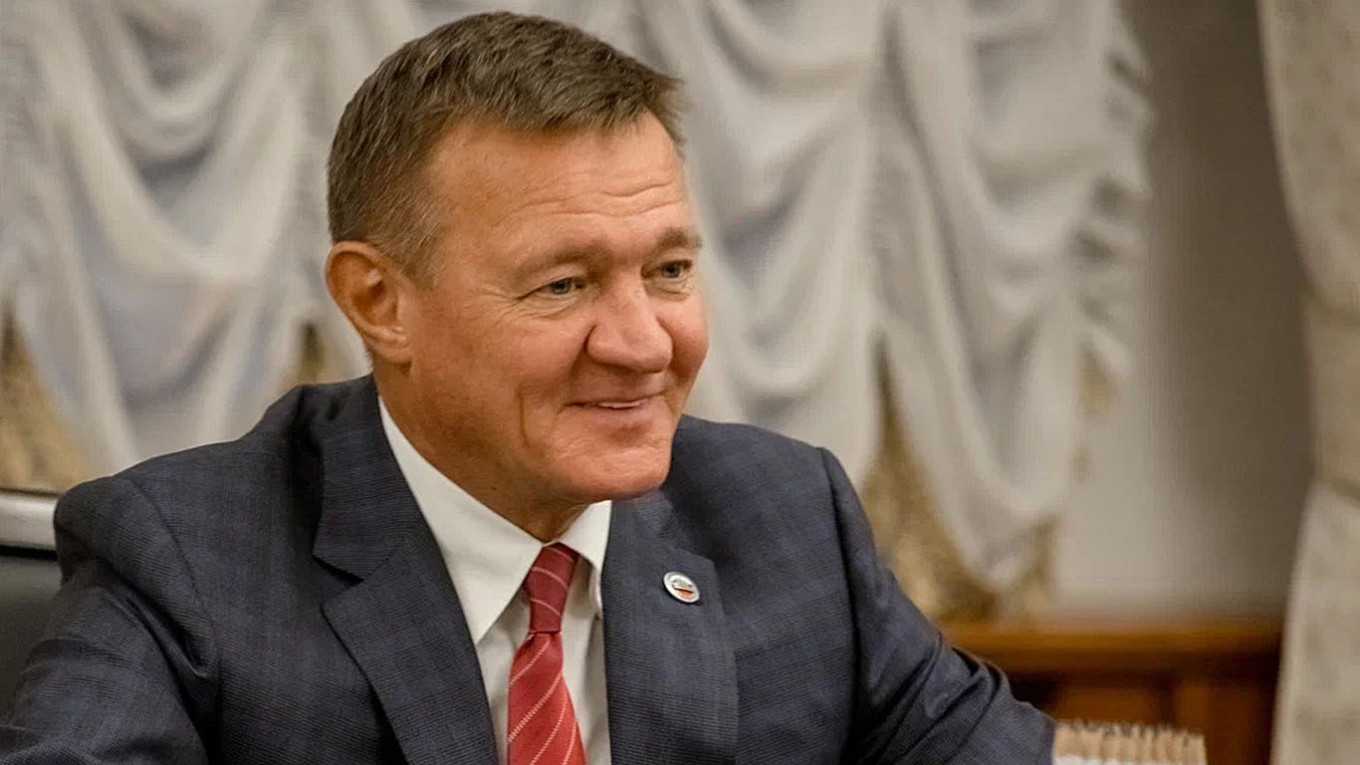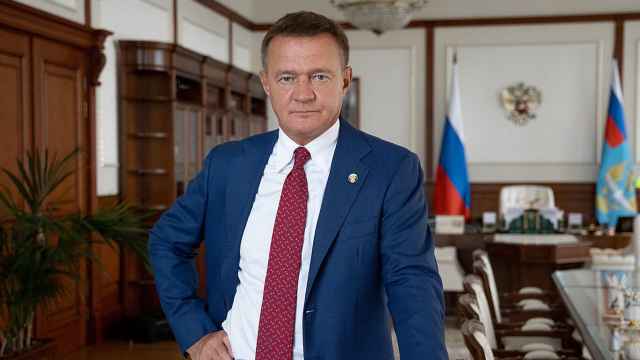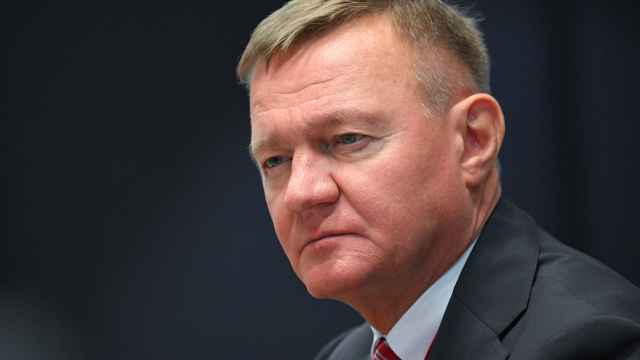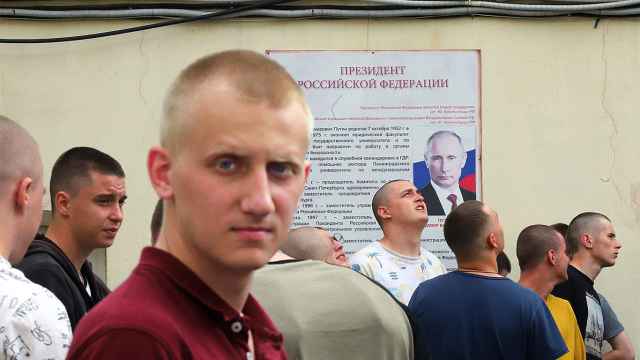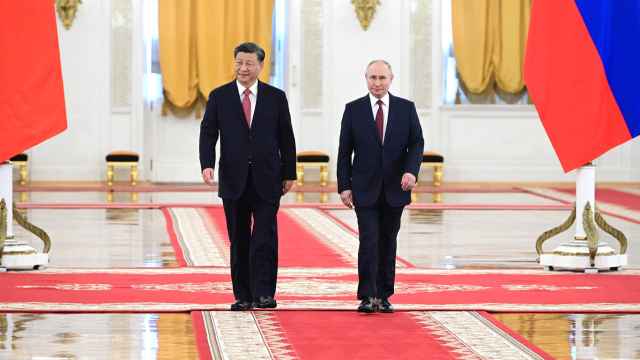Russian Transportation Minister Roman Starovoit was found dead near a parking lot in Moscow’s Odintsovo district, where he lived, on July 7. He apparently shot himself — or, at least, this is the working theory of investigators.
Starovoit was dismissed by President Vladimir Putin just hours earlier and was likely facing an investigation into his role in the massive embezzlement of about 4 billion rubles ($51 million) affecting the construction of defensive structures in the Kursk region.
That investigation, which started after the Ukrainian army broke into the region relatively effortlessly in August 2024, had already led to a series of arrests, including Kursk Regional Development Corporation chief Vladimir Lukin and Alexei Smirnov, Starovoit’s former deputy who was also briefly his successor as Kursk governor.
Similar probes were opened in the Bryansk and Belgorod regions, suggesting that corruption was likely not unique to the Kursk region. However, those two governors have so far stayed in office, likely due to their luck of not being the one region where a Ukrainian offensive tested their defenses.
Before his demise, Starovoit was the poster child of the “School of Governors,” a training program for Russian public officials aimed at homogenizing the gubernatorial corpus. Following his appointment to head the Transportation Ministry in 2024, he became a rare example of the system’s promise that officials could receive a federal position after serving their time managing a backwater region. His promotion owed more to his strong links to Arkady Rotenberg, a close Putin ally and the main beneficiary of road construction contracts.
For a while, Starovoit also publicized his good relationship with the Wagner Group and its leader, Yevgeny Prigozhin, which had seemed like a good career move prior to Prigozhin’s mutiny and subsequent death. He tried to talk down the tightness of these links later.
Following his appointment to the federal government, he also remained a de facto overseer of Kursk, an increasingly important region as it borders Ukraine. His former lieutenant, Alexei Smirnov, a local official with links to Moscow Mayor Sergei Sobyanin’s circle, was nominally in charge. This then looked like a new model of regional governance that the Kremlin was experimenting with.
In a couple of months, however, with the failure of the pricey defensive structure erected by the government of Starovoit and Smirnov on full display and with local residents angrily complaining about the lack of emergency housing, the fate of both officials quickly took a U-turn, with Smirnov first dismissed and then arrested in April.
Prior to the war, incumbent federal government officials had traditionally enjoyed a degree of protection from prosecution. The one exception was former Deputy Economy Minister Alexei Ulyukaev, who was arrested and jailed in 2017 on corruption charges likely orchestrated by Rosneft chief Igor Sechin. However, Ulyukaev was a technocrat with few, if any, powerful backers in the business elite.
But over the past year, things started to change. Following the inauguration of Putin’s fifth presidential term, a wave of arrests of high-ranking officials at the Defense Ministry signaled that the prosecution of incumbent or recently dismissed officials was no longer taboo (all while the appointment of Andrei Belousov to head the ministry suggested a mandate to root out corruption in military procurement). Former deputy minister Timur Ivanov was sentenced to 13 years in prison last week. This was accompanied by an even bigger wave of criminal prosecution of regional officials, typically regional ministers, deputy ministers and mayors in both 2024 and 2025, suggesting that the security services had received a red light to pursue cases that had been frozen likely due to domestic risk-avoidance in the first two years of the war.
It thus seemed likely that Starovoit would face a criminal case sooner or later, with the only remaining question being whether Rotenberg would offer him enough protection. However, in February, another of his protegees, Novgorod Governor Andrei Nikitin was appointed to the Transportation Ministry as deputy minister and obvious minister-in-waiting, as yet another signal that Starovoit’s time was running out. Developments such as the collapse of air travel before the Victory Day holiday in May, the disaster caused by the sinking of an oil tanker in the Kerch Strait, or a series of explosions of ships after calling in Russian seaports, have further weakened his position. He had probably been well aware that he would soon be facing legal action and is thus entirely plausible that he killed himself to avoid almost certain prison time.
The problem is that alternative explanations may seem almost as plausible as the official version of suicide.
Following the discovery of Starovoit’s body, rumors started circulating almost instantly. Most crucially, it remains unclear whether the minister died before or after being dismissed by Putin, and with that, there are, inevitably, versions of the story circulating, in which Starovoit was, in fact, murdered, perhaps several days before his dismissal was announced. Political commentator Sergei Markov, for example, suggested that the minister was murdered to prevent him from testifying against other high-ranking officials in his pending corruption investigation.
Other versions have variably named the Rotenbergs and their opponents as the perpetrators. The death of another, lower-ranking official in Starovoit’s ministry on July 7 seems to have fueled conspiracy theories further, even though nothing indicates that the two deaths are connected.
Whether or not any of the above speculations are true, the suicide of a high-ranking federal official, unprecedented in post-Soviet Russia, will almost certainly lead to a shock in Russia’s political elite, even if most will likely keep pretending, for the moment, that everything is fine. Predictably, Kremlin-linked television channels gave Starovoit’s suicide very little airtime.
Worryingly for the Kremlin, regardless of what actually happened, some versions of the story that will be circulating imply that Putin, who built his power vertical on his ability to arbitrate elite disputes, was either a passive bystander in this case or, at the very least, reacted to developments instead of controlling or preempting them.
If this thinking takes root, especially against the backdrop of growing unpredictability regarding property rights, arrest waves and the economy at large, the consequences are difficult to foresee.
This article was adapted from the original on the No Yardstick substack.
A Message from The Moscow Times:
Dear readers,
We are facing unprecedented challenges. Russia's Prosecutor General's Office has designated The Moscow Times as an "undesirable" organization, criminalizing our work and putting our staff at risk of prosecution. This follows our earlier unjust labeling as a "foreign agent."
These actions are direct attempts to silence independent journalism in Russia. The authorities claim our work "discredits the decisions of the Russian leadership." We see things differently: we strive to provide accurate, unbiased reporting on Russia.
We, the journalists of The Moscow Times, refuse to be silenced. But to continue our work, we need your help.
Your support, no matter how small, makes a world of difference. If you can, please support us monthly starting from just $2. It's quick to set up, and every contribution makes a significant impact.
By supporting The Moscow Times, you're defending open, independent journalism in the face of repression. Thank you for standing with us.
Remind me later.



